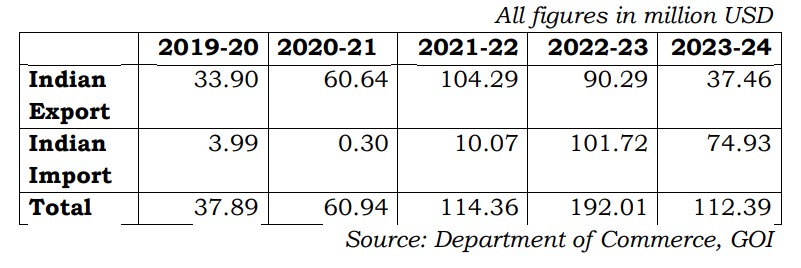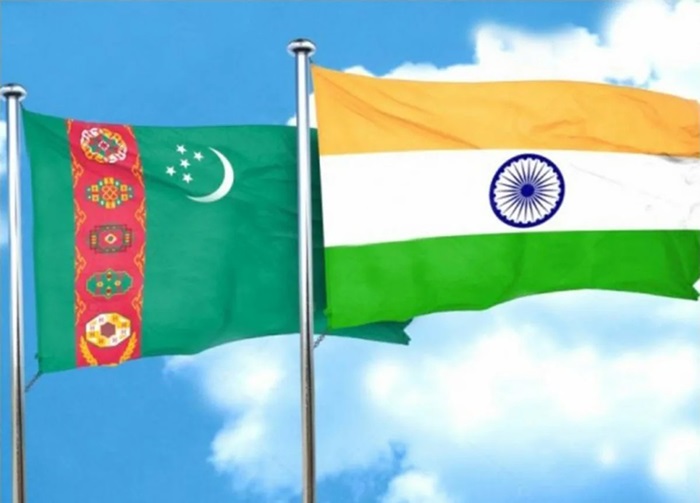Overview
India was among the first countries to recognize Turkmenistan’s independence in December 1991. Formal diplomatic relations were established in April 1992 with opening of resident Mission of India in Ashgabat in January 1994.
Historical Background
2. India and Turkmenistan share historical and civilizational linkages, established by archaeological evidence that contacts existed between the Indus Valley Civilization and Bronze Age settlements in southern Turkmenistan. A statue of Buddha found in the ruins of Merv, Mary Province in Turkmenistan suggests trade and cultural links between the two countries since ancient times as Merv was an important intersection in the “Silk Route”. The presence of “Turkmen Gate” in Delhi, built in honour of Turkmen Sufi poet Shah Turkmen Bayabani also testifies the age-old links between both countries.
Important visits
3. Prime Minister Shri Narendra Modi paid a visit to Ashgabat from July 10-11, 2015 as part of his Central Asia tour. Former President, Shri Ram Nath Kovind visited Ashgabat from April 02- 04, 2022.
Institutional mechanisms
4. Both countries have established institutional mechanisms of Foreign Office Consultations (FOC) and Inter-Governmental Commission (IGC) for Trade, Economic, Scientific and Technological Cooperation. The Last FOC co-chair by Turkmen DFM and Secretary (West) was held in online format on January 13, 2021. The last IGC was held in New Delhi on August 14, 2017 at the level of Foreign Minister.
Trade and Economic Relations
5. Bilateral trade between India and Turkmenistan has remained robust but much below potential. The Trade figures for the last 5years are as follows:

6. The major items of India’s exports are pharmaceuticals, agricultural products, sugar, meat, electronic and electrical items, machinery, woven apparel and tyres. The major import commodities are: fertilizers, inorganic minerals, chemicals and dyes.
ITEC and ICCR Scholarships
7. The Turkmen nationals have been receiving training in the various Indian Technical and Economic Cooperation (ITEC) courses. India is also offering ICCR scholarships to Turkmen students every year in different Indian Universities in different fields along with scholarships in the field of AYUSH and Yoga.
8. Hindi language has been one of the earliest language course being taught at the Azadi Institute of World Languages in Ashgabat.
Cultural Cooperation
9. Cultural linkages between India and Turkmenistan have historical context and resonate in close and similar traditions. The performing arts, Indian cinema and music are very popular in Turkmenistan, with regular exchanges of cultural troupes from both the sides. Yoga continues to be one of the most enduring and effective bridges in India-Turkmen relations. Yoga teachers have been conducting regular yoga classes.
10. An Ayurveda expert, from Ministry of AYUSH has been offering free Ayurveda consultations and lectures at different institutes of Turkmenistan.
11. As part of the celebrations of 300th birth anniversary of Turkmen national poet Magtymguly Pyragy, in May 2024, Turkmenistan installed a statue of Gurudev Rabindranath Tagore in the Magtymguly Cultural Complex in Ashgabat.
Indian community
12. Indian nationals in Turkmenistan are about 200. Most are professionals, semi-skilled & skilled workers employed in construction, textiles, pharmaceuticals and oil & gas sectors
March 2025 ///Ministry of External Affairs of India
